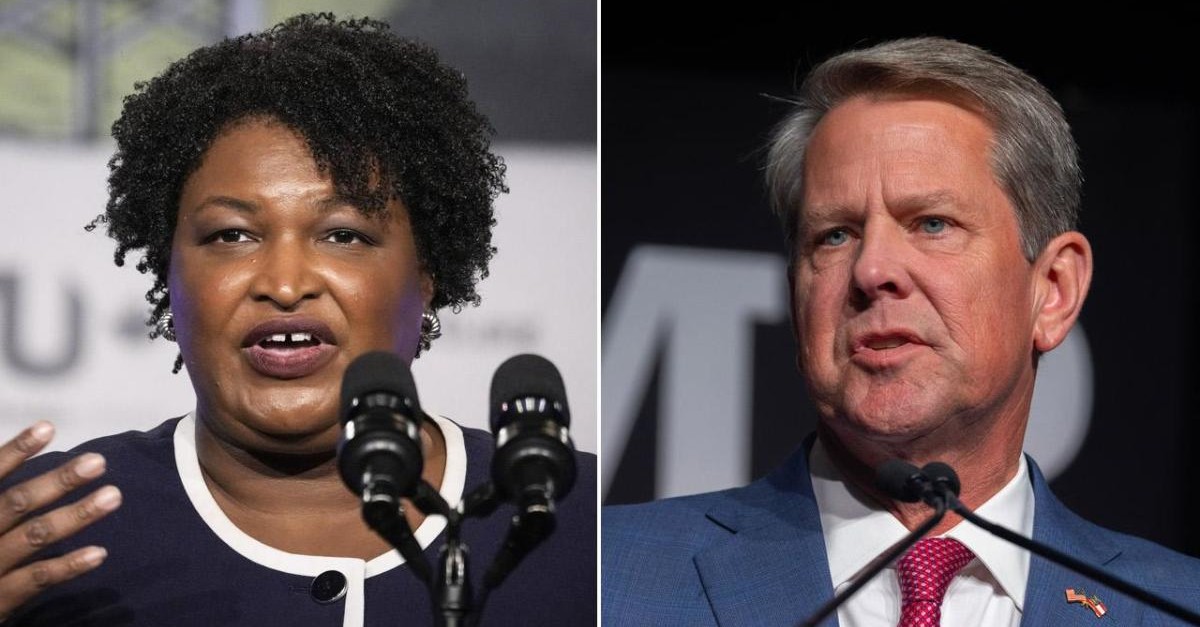OPINION: This article may contain commentary which reflects the author's opinion.
A federal judge has upheld several parts of a voter integrity law that was passed in Georgia.
Judge J.P. Boulee of the United States District Court for the Northern District of Georgia upheld the parts of Georgia’s Election Integrity Law challenged by an organization that sends prospective voters prefilled absentee ballot applications.
VoteAmerica sued Georgia Secretary of State Brad Raffensperger to strike down portions of the bill that added requirements for organizations or individuals that mail prefilled absentee ballot applications to potential voters.
The bill, Georgia SB 202, was signed into law in May 2021 by Republican Gov. Brian Kemp. It includes three provisions that apply additional restrictions to such ballot applications.
Under the law, third-party organizations are prohibited from sending absentee ballot applications prefilled with the prospective voter’s required information. They are also prohibited from sending applications to prospective voters who have already requested an absentee ballot.
Further, the absentee ballot applications must include the following disclaimer printed on the front of the form: “This is NOT an official government publication and was NOT provided to you by any governmental entity and this is NOT a ballot. It is being distributed by [insert name and address of person, organization, or other entity distributing such document or material].”
The court sided with Raffensperger and the RNC, holding that the plaintiff’s First Amendment rights were not violated, and they did not meet the standard to obtain an injunction striking down the law.
“Further, this Court finds that combining speech (in the cover information) with the conduct of sending an application form, as Plaintiffs do here, is not sufficient to transform the act of sending the application forms into protected speech,” the court wrote. “Plaintiffs’ pro-absentee voting message is not necessarily intrinsic to the act of sending prospective voters an application form.”
The court added that the state’s disclaimer “simply presents information designed to reduce voter confusion regarding absentee ballot applications provided by third parties and to relieve election officials of the administrative burdens resulting from such confusion.”
“Third parties who may not be aware of these proceedings are presumably already preparing to distribute ballot application forms bearing the current Disclaimer. A ruling requiring a different disclaimer could cause two different application forms to be in circulation,” the judge wrote. “Prospective voters who receive both versions of the form could be confused by the conflicting statements. The Court is also mindful of unintended consequences of late-breaking changes to the law.”
Judge Boulee also declined to block a portion of Georgia’s election law that bars handing out snacks and drinks to voters waiting in line within a certain distance of a polling place.
Liberal advocacy groups argued the ban infringed on their right to free speech.
Boulee’s ruling against the liberal groups means activists will be prohibited from distributing food and drinks within 150 feet of a polling place or within 25 feet of any person in line during this year’s general election.
“The judge noted that the 25-foot buffer around individuals in line was likely unconstitutional because it was not tied to a fixed location, unlike the 150-foot zone around a polling place. However, Boulee agreed with state officials who argued that it was too close to Election Day to change the law, as well as that implementing different rules for the Nov. 8 vote would only cause confusion among poll workers and voters,” New York Post reported.
“Supporters of the restriction argue that it prevents voters from being influenced by operatives offering free food or water at polling places. Georgia’s Election Integrity Act was decried by Democrats after its passage last year, with prominent Democrats pressing corporations to boycott the Peach State in response,” the outlet added.
